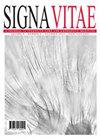对多种化学物质敏感患者的麻醉:目前的认识
IF 0.6
4区 医学
Q3 EMERGENCY MEDICINE
引用次数: 0
摘要
多种化学物质敏感性(MCS)是一种病理状况,我们尚未从病因学和临床的角度明确认识。这种疾病的潜在机制仍在调查中,患者最常报告的症状是不适、疲劳、头痛、关节痛、失眠和皮炎。虽然这种情况可能会在暴露于许多物质(通常是吸入)或服用药物后产生不良反应的真实风险,但医学/科学文献只提供了很少的关于当受MCS影响的患者需要接受麻醉时应采取的最安全行动方案的信息。正因为如此,我们以PubMed和Scopus为主要来源,对现有文献进行了电子检索,以寻找有关MCS患者和接受麻醉的患者的文章。考虑的时间框架是2000年1月至2022年12月。研究显示,在研究的几年中,只有13篇文章涉及对多种化学物质敏感的患者的麻醉。只有6部作品,所有病例报告,描述了用于麻醉的药物。全麻5例,蛛网膜下腔阻滞1例。所有病例均未报告与麻醉相关的重大并发症。有限的数据无法确定麻醉实践和麻醉药物可以更安全地用于MCS患者,但在所描述的病例报告中没有出现严重的不良反应,总的来说,在文献中,通过实施容易实现的措施,MCS患者麻醉不会引起严重并发症的可能性是合理的。本文章由计算机程序翻译,如有差异,请以英文原文为准。
Anesthesia in patients with multiple chemical sensitivity: current understanding
Multiple Chemical Sensitivity (MCS) is a pathological condition that we do not yet have a clear understanding of from an etiological and clinical point of view. The underlying mechanisms of the disorder are still being investigated and the most frequently reported symptoms by patients are malaise, fatigue, headache, arthralgia, insomnia and dermatitis. Although this condition may entail a real risk of the occurrence of adverse reactions following exposure to many substances, often inhaled, or the taking of drugs, medical/scientific literature provides only a little information regarding the safest course of action to be taken when patients affected by MCS need to undergo anesthesia. It is for this reason that an electronic search of existing literature has been made, using PubMed and Scopus as a primary source, in order to find articles about patients affected by MCS and who have undergone anesthesia. The time frame considered was January 2000–December 2022. The research showed only 13 articles that dealt with anesthesia in patients with multiple chemical sensitivity in the years in question. Only 6 works, all case reports, describe the drugs used to perform anesthesia. Five cases were for general anesthesia and one was a case of subarachnoid block. No major complications related to anesthesiological practice were reported in any of the cases. The limited data does not enable the identification of anesthesiological practice and anesthetic drugs that can be used more safely in MCS patients, but the absence of serious adverse reactions in the case reports described, and in the literature in general, is reasonably reassuring about the possibility of anesthesia in MCS patients without causing serious complications by implementing easily achievable measures.
求助全文
通过发布文献求助,成功后即可免费获取论文全文。
去求助
来源期刊

Signa Vitae
医学-急救医学
CiteScore
1.30
自引率
9.10%
发文量
0
审稿时长
3 months
期刊介绍:
Signa Vitae is a completely open-access,peer-reviewed journal dedicate to deliver the leading edge research in anaesthesia, intensive care and emergency medicine to publics. The journal’s intention is to be practice-oriented, so we focus on the clinical practice and fundamental understanding of adult, pediatric and neonatal intensive care, as well as anesthesia and emergency medicine.
Although Signa Vitae is primarily a clinical journal, we welcome submissions of basic science papers if the authors can demonstrate their clinical relevance. The Signa Vitae journal encourages scientists and academicians all around the world to share their original writings in the form of original research, review, mini-review, systematic review, short communication, case report, letter to the editor, commentary, rapid report, news and views, as well as meeting report. Full texts of all published articles, can be downloaded for free from our web site.
 求助内容:
求助内容: 应助结果提醒方式:
应助结果提醒方式:


